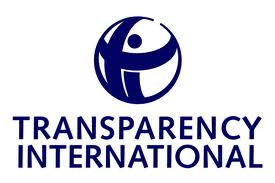 Transparency International, in a new series of reports, calls on governments in the Middle East and North Africa to pass effective laws that guarantee public information is freely accessible to citizens.
Transparency International, in a new series of reports, calls on governments in the Middle East and North Africa to pass effective laws that guarantee public information is freely accessible to citizens.
The report, It belongs to you: Public information in the Middle East & North Africa, highlights that existing legal provisions about public information are full of restrictions and loopholes and do not promote transparency. Greater access to information can be used to expose and ultimately prevent corrupt acts, and hold public officials accountable.
“Citizens will only be able to know and demand their rights with accessible and transparent information” said Christoph Wilcke, director of the Middle East and North Africa programme at Transparency International. “Accountable government starts with informed citizens.”
Transparency International assessed access to information legislation and practice in Egypt, Morocco, Palestine and Yemen in four separate reports in addition to producing a video documentary featuring true stories about the use of information to counter corruption. The case studies in the reports and the true stories cover issues of information and corruption in diesel subsidies, drug smuggling, wholesale food markets, land titles, and the health sector, among others.
In all cases, civil society actors, often Transparency International national chapters, sided with victims of corruption and worked to seek redress.
“Unfortunately, money that is earmarked for the people in the public budget goes into the pockets of the powerful,” said Naif Hassan, a Yemeni journalist and publisher whose efforts to expose corruption in the diesel smuggling business are chronicled in the web documentary.
The four national reports find existing provisions for accessing information in a variety of laws remain piecemeal. Transparency International recommends that governments across the region legislate and implement general access to information laws in line with international standards such as those elaborated by the non-profit organisation AccessInfo.
Yemen has a general law on access to information, but implementing regulations for the law remain outstanding and the body assessing information requests by citizens is not yet fully functional. In Egypt, the now-suspended 2012 constitution for the first time included a right to information, but a general law remains in draft form. Morocco also included the right to know in 2011 amendments to its constitution and the government has put forward a draft general information law. In Palestine, a 2005 draft law on information has not advanced.
The four countries examined are parties to the United Nations Convention against Corruption (UNCAC). The convention obliges signatories to promote political and fiscal transparency about decision-making processes that have a marked effect on citizens’ daily lives.
“All four governments should proactively make information public and raise awareness about how citizens can access crucial information and promote transparency,” Wilcke said.
It belongs to you makes clear that ordinary citizens have the power to fight corruption if they have access to public information.
The full reports and documentary can be viewed on this website http://action.transparency.org
Transparency International is the civil society organisation leading the fight against corruption
